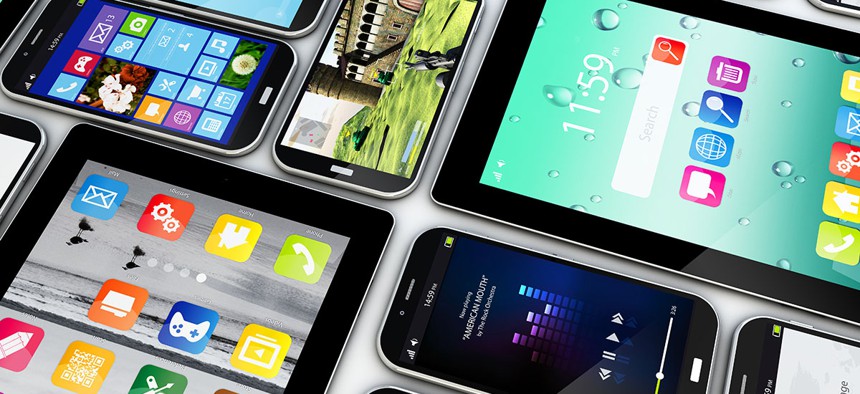Survey: More People Want to Access Government Services on Their Smartphones

Georgejmclittle/Shutterstock.com
A new survey finds the majority of millennials want to access government services on their phones.
The majority of citizens want to access some government services on smartphone apps, but it’s unclear whether government can keep up with that demand.
About 55 percent of citizens would like to receive notifications about wait times for government services, like airport screening or passport processing, a new survey found. (The consulting firm Accenture asked about 500 people which services they’d like to access on their smartphones -- choices included paying taxes and applying for visas.)
While 21 percent said they weren’t interested in any of those apps, 43 percent of respondents said they would vote via smartphone if it were possible. A little over one-third said they’d pay their taxes on their phones, and 30 percent said they’d like to receive automated Social Security and Medicaid payments via their phones.
» Get the best federal technology news and ideas delivered right to your inbox. Sign up here.
Millennials appear to be more comfortable with the idea of accessing government services on their smartphones. Sixty-two percent of respondents born between 1979 and 1997 said they wanted wait-time notifications on their phones, as compared to 39 percent of adults born before 1946. Forty-three percent of millennials want to use their phones to apply for and to manage their health insurance -- just 6 percent of adults born before 1946 wanted to do that.
A Pew Research Center Survey conducted last year found that about 40 percent of smartphone users have looked up government services on their phone, and the Obama administration has attempted to promote mobile services. The White House’s 2012 Digital Government Strategy tasked agencies with choosing two or more services to be more smartphone accessible.
But many federal sites continue to be cluttered with text and aren’t easily navigable for smartphone users, a report from the Government Accountability Office found last year. WhiteHouse.gov only last year become responsive, meaning it now reformats depending on the users’ device.
Maintaining mobile-friendly sites is critical because not all citizens have regular access to desktop computers, and therefore might lose access to government information and services, the GAO report concluded.





